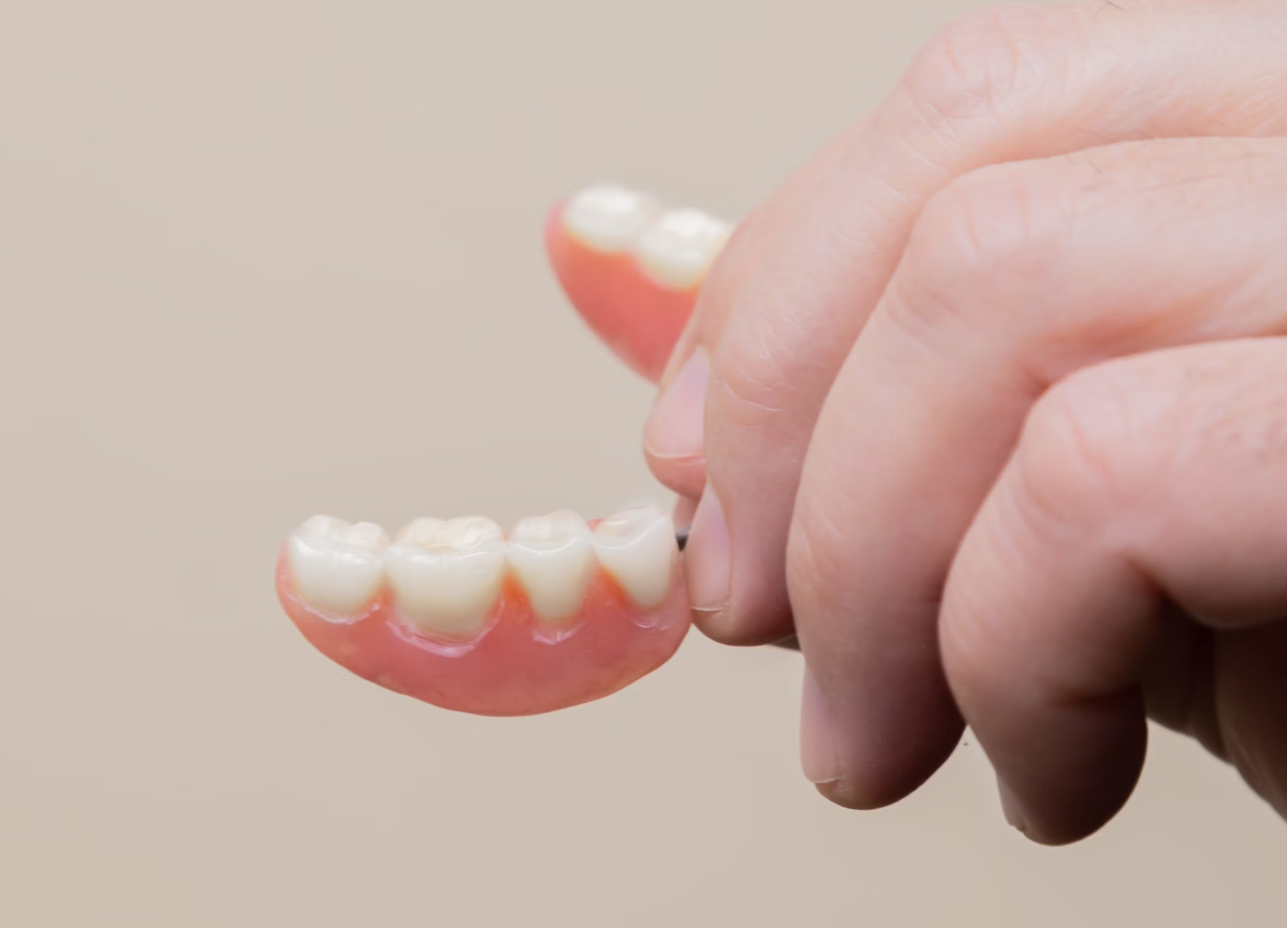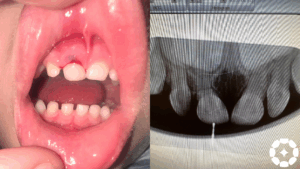When it comes to restoring your smile and improving your oral health, dentures have long been a popular solution. However, with advancements in dental technology, implant-supported dentures have emerged as a more secure and comfortable alternative. If you’re considering dentures or implant-supported dentures, understanding the differences between the two options is essential for making an informed decision. At Paschke Dental Group, led by Dr. Hollie Paschke, we take pride in helping patients achieve beautiful, functional smiles. Whether you’re a full-time resident or a seasonal visitor, we’re here to provide expert guidance on finding the right solution for your dental needs.
Understanding Traditional Dentures
Traditional dentures have been used for decades to replace missing teeth. They are removable appliances made of acrylic or a combination of acrylic and metal that rest on the gums and are held in place by suction and sometimes adhesive. Dentures can replace an entire arch of teeth (full dentures) or just a section of missing teeth (partial dentures).
How Traditional Dentures Work
Traditional dentures sit on top of the gums and rely on the natural shape of your mouth and suction to stay in place. They are custom-made to fit your mout mh, but because they are not anchored to anything beneath the gum line, they can sometimes slip or shift while eating or speaking.
Benefits of Traditional Dentures
- Non-Invasive – Traditional dentures don’t require surgery, making them a more accessible option for some patients.
- Affordable – Traditional dentures are usually more cost-effective upfront compared to implant-supported options.
- Relatively Quick Process – The process of getting traditional dentures typically takes only a few visits to complete.
- Replace Multiple Teeth at Once – Full dentures can replace an entire arch of missing teeth, restoring your smile quickly.
Drawbacks of Traditional Dentures
- Stability Issues – Dentures can slip or shift while eating or speaking, which may cause discomfort or embarrassment.
- Bone Loss Over Time – Traditional dentures don’t stimulate the jawbone, which can lead to bone loss and changes in facial structure over time.
- Maintenance – Dentures need to be removed daily for cleaning and must be soaked overnight.
- Possible Sore Spots – Since they rest directly on the gums, traditional dentures can cause irritation and sore spots.
What Are Implant-Supported Dentures?
Implant-supported dentures are a modern alternative to traditional dentures. They involve placing a series of titanium implants into the jawbone, which serve as anchors for a set of dentures. The implants fuse with the jawbone through a process called osseointegration, creating a strong and stable foundation for the dentures.
Implant-supported dentures can be removable or fixed (permanent), depending on the patient’s preference and oral health condition.
How Implant-Supported Dentures Work
- Titanium implants are surgically placed into the bone.
- After a healing period of several months, the bone grows into the threads of the implant, creating a secure foundation.
- The dentures are then attached to the implants, providing a stable and comfortable fit.
- Depending on the type of dentures, they can either snap in and out or be permanently secured in place.
Benefits of Implant-Supported Dentures
- Improved Stability – Implant-supported dentures are anchored to the jawbone, so they don’t slip or shift.
- Enhanced Comfort – No more uncomfortable rubbing or sore spots because the dentures are securely anchored.
- Better Chewing Ability – Patients can enjoy a wider range of foods without worrying about their dentures shifting.
- Prevents Bone Loss – Implants stimulate the jawbone, preserving bone density and preventing the sunken facial appearance that can occur with traditional dentures.
- Long-Lasting – With proper care, implant-supported dentures can last for decades.
Drawbacks of Implant-Supported Dentures
- Higher Initial Cost – Implant-supported dentures are more expensive upfront than traditional dentures.
- Surgical Procedure Required – The placement of implants requires oral surgery and a healing period.
- Longer Process – Osseointegration (fusion of the implants with the bone) can take several months.
Key Differences Between Traditional and Implant-Supported Dentures
Feature Traditional Dentures Implant-Supported Dentures Stability Can slip or shift Firm and stable, anchored to implants Bone Health Does not prevent bone loss Stimulates bone, preserving bone density Comfort May cause sore spots Secure fit reduces discomfort Cost Lower upfront cost Higher initial investment, but longer-lasting Maintenance Must be removed for cleaning Removable or fixed, requires regular care Chewing Power Limited Close to natural teeth Which Option is Best for You?
Choosing between traditional dentures and implant-supported dentures depends on several factors, including your oral health, budget, and personal preferences. At Paschke Dental Group, we work closely with each patient to help them make an informed decision.
Traditional Dentures Might Be Right For You If:
- You are looking for a non-invasive solution.
- You have significant bone loss that may complicate implant placement.
- You need a cost-effective solution to replace multiple missing teeth.
- You prefer a removable option for cleaning and maintenance.
Implant-Supported Dentures Might Be Right For You If:
- You want a more stable and secure solution.
- You are concerned about bone loss and want to preserve bone health.
- You want a natural feel and the ability to eat a wider variety of foods.
- You’re looking for a long-term investment in your oral health.
The Implant-Supported Denture Process at Paschke Dental Group
If you’re considering implant-supported dentures, you’re in excellent hands with Dr. Hollie Paschke and the team at Paschke Dental Group. Here’s what you can expect from the process:
- Consultation – Dr. Paschke will perform a thorough evaluation, including X-rays and a review of your dental history, to determine if you’re a candidate for implants.
- Treatment Planning – A customized treatment plan will be created, outlining the number of implants needed and the type of denture.
- Implant Placement – The implants are surgically placed into the bone.
- Healing Period – Over the next few months, the implants will fuse with the bone.
- Denture Placement – Once healing is complete, the dentures are attached to the implants, creating a secure and comfortable fit.
Why Choose Paschke Dental Group for Your Denture Needs?
At Paschke Dental Group, we combine advanced dental technology with compassionate patient care. Located in Venice Health Park, our practice is known for delivering exceptional results in a comfortable, stress-free environment.
- Expert Care – Dr. Hollie Paschke has extensive experience in restorative and implant dentistry.
- Advanced Technology – We use state-of-the-art equipment to ensure precision and comfort.
- Personalized Treatment – Every patient receives a customized care plan based on their unique needs.
- Convenient Location – Our office in Venice, FL, is easily accessible for both full-time residents and snowbirds.
Restore Your Smile with Confidence
Whether you choose traditional dentures or implant-supported dentures, Paschke Dental Group is here to help you regain your smile and confidence. Our team will work with you every step of the way to ensure you receive the best possible care.
Contact Paschke Dental Group today to schedule a consultation with Dr. Hollie Paschke and find out which option is best for you. Your dream smile is closer than you think!








